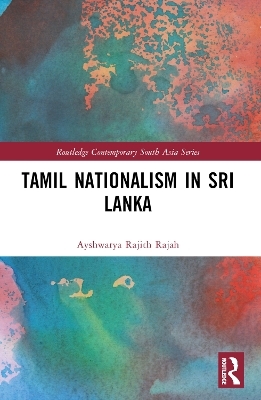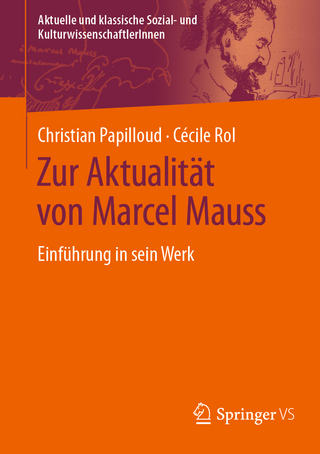
Tamil Nationalism in Sri Lanka
Counter-history as War after the Tamil Tigers
Seiten
2024
Routledge (Verlag)
978-1-032-29457-5 (ISBN)
Routledge (Verlag)
978-1-032-29457-5 (ISBN)
This book examines Tamil nationalism in Sri Lanka, how Tamil nationalism has survived the destruction of the Tamil Tigers after May 2009 and will be of interest to Politics and International Relations, ethnic nationalism, post-armed conflict peacebuilding/conflict resolution, the politics in Sri Lanka, diaspora politics and Foucault.
This book examines Tamil nationalism in Sri Lanka and provides insights on how Tamil nationalism has survived the destruction of the Tamil Tigers after May 2009 and continues to thrive, despite the absence of a charismatic leadership to lead it or a centralised organisation to mobilise the Tamils along ethnic nationalistic lines.
The ethnic nationalist ideology shaped up by the Tamil Tigers continues to remain the driving force of the Tamil polity in Sri Lanka and the Diaspora. Using a Foucauldian counter-historical theoretical framework, the author analyses and offers answers to these questions: What is keeping Tamil nationalism alive despite the demise of the Tamil Tigers over a decade ago? Why do many Tamils in Sri Lanka and abroad refuse to accept a Sri Lankan political identity? How are Tamils able to continue on a nationalist path despite the absence of a unified political leadership? The book argues that Tamil nationalism has survived the latter’s destruction because it has become counter-historical. It is this that has allowed, despite the internecine rivalries between Tamil political parties and Diaspora groups, the Tamil nationalist spirit to remain alive. The author also suggests that counter-history has, for many Tamil political parties and Diaspora groups, become the means of waging war, other than through an armed struggle, against the Sri Lankan state. Based on field research, interviews and documentary analysis, the book provides empirical and unique insights on Foucault’s thesis that power is multifaceted and can function in the absence of centralised mechanisms.
This book will be of interest to researchers in the fields of Politics and International Relations, in particular those working on ethnic nationalism, post-armed conflict peacebuilding/conflict resolution, the politics in Sri Lanka, diaspora politics and Foucault.
This book examines Tamil nationalism in Sri Lanka and provides insights on how Tamil nationalism has survived the destruction of the Tamil Tigers after May 2009 and continues to thrive, despite the absence of a charismatic leadership to lead it or a centralised organisation to mobilise the Tamils along ethnic nationalistic lines.
The ethnic nationalist ideology shaped up by the Tamil Tigers continues to remain the driving force of the Tamil polity in Sri Lanka and the Diaspora. Using a Foucauldian counter-historical theoretical framework, the author analyses and offers answers to these questions: What is keeping Tamil nationalism alive despite the demise of the Tamil Tigers over a decade ago? Why do many Tamils in Sri Lanka and abroad refuse to accept a Sri Lankan political identity? How are Tamils able to continue on a nationalist path despite the absence of a unified political leadership? The book argues that Tamil nationalism has survived the latter’s destruction because it has become counter-historical. It is this that has allowed, despite the internecine rivalries between Tamil political parties and Diaspora groups, the Tamil nationalist spirit to remain alive. The author also suggests that counter-history has, for many Tamil political parties and Diaspora groups, become the means of waging war, other than through an armed struggle, against the Sri Lankan state. Based on field research, interviews and documentary analysis, the book provides empirical and unique insights on Foucault’s thesis that power is multifaceted and can function in the absence of centralised mechanisms.
This book will be of interest to researchers in the fields of Politics and International Relations, in particular those working on ethnic nationalism, post-armed conflict peacebuilding/conflict resolution, the politics in Sri Lanka, diaspora politics and Foucault.
A.R. Sriskanda Rajah has a PhD in International Relations and has taught at Brunel and City, University of London, UK. He was also a member of International Panel on Exiting Violence at Fondation Maison des Sciences de l’Homme, France, with a special focus on peace-building and independence movements. His previous publications include Government and Politics in Sri Lanka (Routledge 2017).
Acknowledgments
Abbreviations
Introduction
1 Foucault and Counter-History
2 Consolidating Tamil Nationalism
3 Politics of Immortalisation
4 Politics of Memorialisation
5 (Re)conceptualising Global Politics
6 The ‘New’ Diplomatic Struggle
Conclusion
Index
| Erscheinungsdatum | 08.11.2022 |
|---|---|
| Reihe/Serie | Routledge Contemporary South Asia Series |
| Verlagsort | London |
| Sprache | englisch |
| Maße | 156 x 234 mm |
| Gewicht | 340 g |
| Themenwelt | Sozialwissenschaften ► Ethnologie |
| Sozialwissenschaften ► Soziologie | |
| ISBN-10 | 1-032-29457-4 / 1032294574 |
| ISBN-13 | 978-1-032-29457-5 / 9781032294575 |
| Zustand | Neuware |
| Haben Sie eine Frage zum Produkt? |
Mehr entdecken
aus dem Bereich
aus dem Bereich
Buch | Softcover (2024)
Springer Fachmedien (Verlag)
79,99 €
Einführung in sein Werk
Buch | Softcover (2024)
Springer VS (Verlag)
27,99 €
Wert, Tausch und menschliches Handeln
Buch | Softcover (2023)
diaphanes (Verlag)
28,00 €


